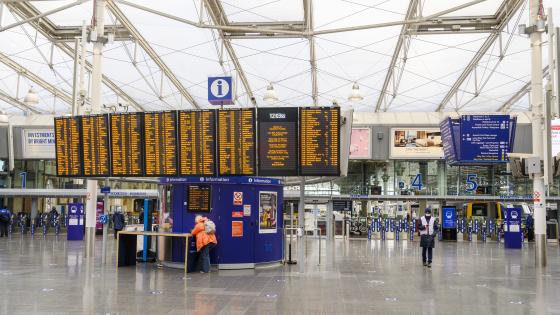
The Office of Rail and Road says Network Rail responded well to the Covid-19 pandemic, and that it is important it continues to plan effectively.
In its Annual Assessment of Network Rail for April 2020 to March 2021, the ORR points out that the pandemic affected all parts of NR’s business and that the infrastructure manager had to be agile in successfully delivering more timetable changes, with increased financial pressures due to the costs of protecting staff.
A key part of NR’s improvement in the future will be making better informed access and timetabling decisions to retain improved train performance where possible and ensuring efficient use of network capacity.
The effects of climate change on the network are highlighted, and the ORR says NR needs to ensure it effectively addresses these – particularly earthworks and drainage systems.
Safety is another focus, and the report says NR must continue its programme to improve workforce safety: three workers died in the period covered by the report. With fewer trains than normal running during the pandemic, asset failures were fewer – but points and structures in the North West and Central Region and structures in the Eastern Region require improvement. Nonetheless, NR has largely delivered its planned renewals, maintenance and enhancements despite the pandemic.
Structures concerns
Changes in the renewals profile of some asset types are noted – such as signalling and telecommunications, with deferrals to the later years of Control Period 6. The ORR says it is crucial NR understands the impact of deferrals, including risks of deliverability.
Concerns are raised about the delivery of structures examinations, and while there has been progress following an Improvement Notice, the regulator says this has ‘plateaued’ and that there are a number of incomplete structures examinations across the regions. An independent reporter will be commissioned to assess the scale of any non-compliance across the regions.
Drainage asset knowledge is another area of concern, with the ORR holding each region to account for completion of surveys within committed timelines to feed into planning milestones for Control Period 7.
NR’s environmental credentials are credited, with good progress made on decarbonisation and enhancing biodiversity – with national strategies now reflected in regional plans.
With train performance – both passenger and freight operations – improving during the pandemic, the ORR says NR has strengthened its engagement and collaboration with operators and strengthened its performance analysis.
Efficiency savings
A key element of NR’s plans for Control Period 6 involved efficiency savings, with £710 million saved in 2020/21 against a target of £570 million. All five regions have met or exceeded their efficiency targets, and NR is confident it will deliver the £3.5 billion of efficiency improvements the regulator required in Control Period 6. It has also committed to delivering a further £500 million of savings.
Financially, NR expects to underperform significantly, largely due to increased costs and disruption due to the pandemic and underperformance in operations expenditure due to the acquisition of personal protective equipment, information technology costs and increased staff overtime. There has also been a decrease in property income – but this was offset by a £203 million outperformance in turnover, driven by lower than predicted Schedule 8 compensation payments due to high levels of train performance during the pandemic.
